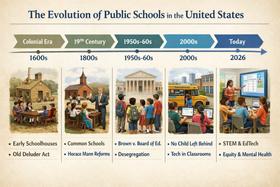Today's students must be well versed in much more than the three traditional "Rs" that have carried public education for the past century. In order to compete in the global marketplace, students must also know their way around the most recent technology utilized in the workplace today.
To help students and teachers in achieving that goal, Google Apps is ready to bring technology into the classroom – in real-time, no less. In a recent agreement between Google Apps and a host of states across the country, more and more public schools will see the results of technology in the classroom.
Using Google Docs in the Classroom
According to a recent entry on the Official Google Blog, Google Apps can provide a multitude of uses in today's classroom, including:
- Gmail allows students and teachers to easily communicate with one another
- Docs that give students the opportunity to turn in assignments to the teacher right from the student's own computer
- Sites that give students access to assignments, lesson plans, and research material any time of the day or night
- Groups that provide additional opportunities for students to interact with instructors and classmates online
The addition of Google Apps makes the entire classroom more interactive, as teachers have the ability to coach students throughout the course of their assignments, and students have easy access to ask questions and get feedback. The "anytime, anywhere" access allows students and teachers






















